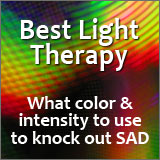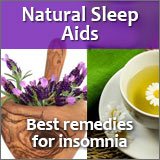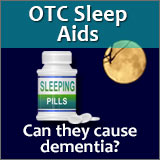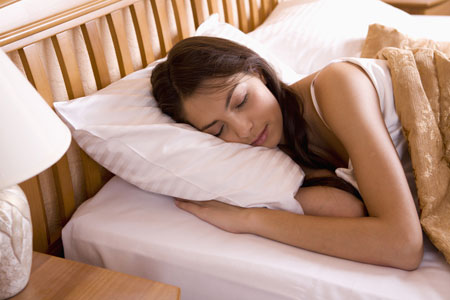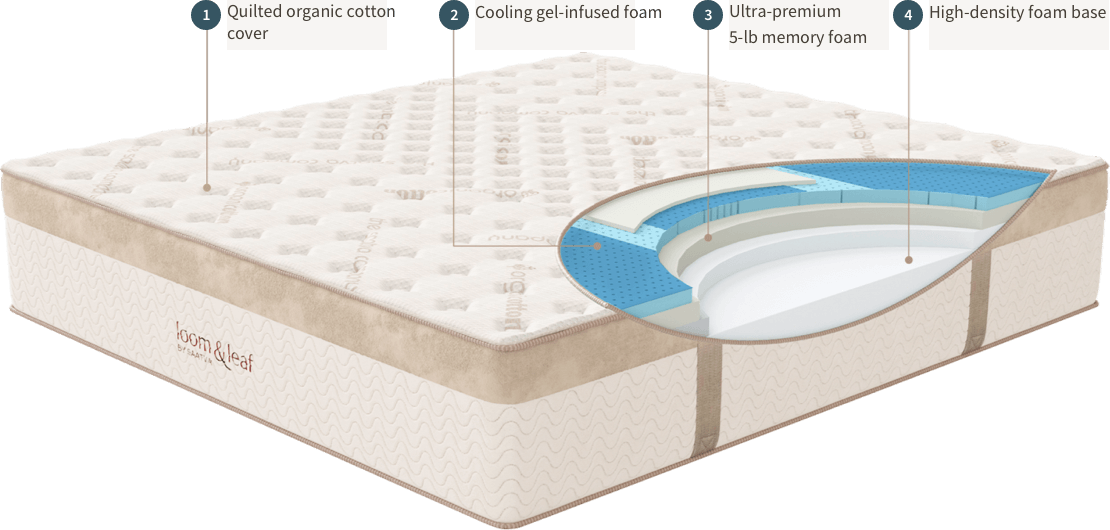4 Essential Facts About Insomnia
These essential facts about insomnia are your first step in your search for insomnia remedies.

Because let's face it.
Battling lack of sleep, insomnia, or any enemy...that you do not understand...is a lost cause.
And considering that the effects of insomnia ruin people physically, emotionally, and financially...and that the physical effects of sleep deprivation can lead to death...it's smart that you and your loved ones have at least these four basic facts about insomnia.
1. What is a good insomnia definition?
One of the most frustrating facts about insomnia is that it's been defined in so many different ways, it's difficult to understand all the terminology.
So the simplest way to define it, without all the terms, is this: Insomnia is a condition where a person is not getting adequate sleep at night for normal daily functioning and a healthy quality of life.
The standard reference text for insomnia and sleep disorders definitions that most of the medical newsletters refer to is called DSM-IV. This stands for Diagnostic and Statistical Manual of Mental Disorders.
Their definition is that insomnia is associated with complaints from people about the quantity, quality or timing of sleep, at least three times a week, for at least one month.
How to Start a Fun New “Money Hobby” that Can End Your Financial Worries
Is insomnia ruining your life financially?
Or are your worries about money giving you insomnia?
Either way, I have a solution.
Click here for
an article I wrote that will lead you to the financial independence you seek.
Stop worrying and start living!
2. What are the symptoms of insomnia?
People will typically fall into one of the following four insomnia symptoms. Keep in mind though that there is a great deal of overlap in these insomnia categories. (It's called mixed insomnia when a person has a combination of these problems.)
- Trouble falling asleep. This widespread sleep problem is
known as sleep onset insomnia. If you normally climb into bed but can't
doze off after more than 30 minutes to an hour or so, this is your type
of insomnia.
- Trouble staying asleep, waking up frequently, and having difficulty falling back asleep. This is known as
sleep maintenance insomnia.
(You may also hear it referred to as sleep-interruption insomnia.)
- Waking up early in the morning. This is where you may
conk out as soon as your head hits the pillow, sleep like a rock for
only five hours, then pop awake at 3:30 in the morning. Sleep scientists
call this early-morning awakening.
- Unrefreshing sleep or not feeling restored by sleep. Many people think they get enough sleep but still wake up feeling groggy and are tired throughout the day. This insomnia symptom is called nonrestorative sleep.
And here's another one of the important facts about insomnia to keep in mind.
There is scientific evidence that shows that the above symptoms of insomnia change in a person over time. This makes it even more difficult to classify patients neatly into one of these four insomnia categories.
That's also why your options on treatment for insomnia may need to change with time. This is one of the most important facts about insomnia that you must remember. Why? Because you may need to be reevaluated by your health care professional, especially if you're taking a sleep medication.
3. How many people have insomnia?
When it comes to facts about insomnia, this is a curious one. Because no one really knows how many people suffer from it!
Estimates are that more than 30% of all Americans have insomnia. That means that upwards of 100 million people in the US may not be sleeping well, a staggering number. And 30 to 50% of people around the globe have some difficulty with sleeping.
Also, women seem to have a higher incidence of insomnia than men. One of the causes of insomnia in women is sleep apnea. (See What is sleep apnea? for information on this dangerous sleep disorder.)
4. How much sleep should adults be getting every night?
It varies by the individual, but generally, adults 20 and older need 7 to 9 hours and this remains consistent throughout life. Those people who brag that they only need 4 or 5 hours will develop sleep debt that must be repaid.
In fact, sleep expert Thomas Roth from the Henry Ford Sleep Disorders Center says that the number of people who need less than five hours sleep a night is ZERO!
The National Sleep Foundation states that on weeknights, American adults typically get 6.9 hours of sleep. This increases to 7.5 hours on the weekends. However, since there is no such thing as a normal amount of sleep, your needs and amounts may be higher or lower than these.
The most important thing for you is not how long you sleep, but how well you sleep...and how you feel the next day. Who knows? Maybe six hours works best for you. Only you know.
And here's one final point to add to these facts about insomnia: The number of hours a person sleeps every night is not a factor in the definition of insomnia.
Looking for your best natural sleep aid for insomnia?
Would you like to fall naturally into a deep, restful sleep, without resorting to potentially harmful prescription sleeping pills? If so, then you may be interested in an outstanding website I recently stumbled upon.
They have one of the most fascinating, thoroughly researched supplements for sleep I've come across in a long time. That's why I say this may be the best natural sleep aid you'll ever learn about. (Link opens in a new window.)
To help you get a great night's sleep, this natural sleep supplement contains an amazing blend of 49 specific ingredients, all working together, to improve sleep patterns. It was formulated by one of the top biochemists in the world.
In addition, you can search their website for a wealth of information on a wide range of health topics including sleep and facts about insomnia...natural skincare...digestive problems...and other health concerns you may have.
Not only that, if you have questions, they are there to help you. Send them an email or do a live chat. Ask your question. See what they say.
If healthy, vibrant, youthful living is important to you, click here to check out their website.
Continue your journey to overcoming insomnia.
Here are more articles you will find helpful.
Can't Sleep? Let's Look At What Is Insomnia, Types of Insomnia, and What Causes Insomnia
What Causes Leg Cramps At Night?
Trouble Staying Asleep? Waking Up Frequently? You May Have Sleep Maintenance Insomnia.
How to Fall Asleep Naturally, Part 1:
How to Fall Asleep Naturally, Part 2: Here Are Five More Tips
How to Fall Asleep Fast: Relaxation and Natural Sleeping Pills
12 Foods That Help You Sleep
Return from Facts About Insomnia to Sleep Disorders Home Page



